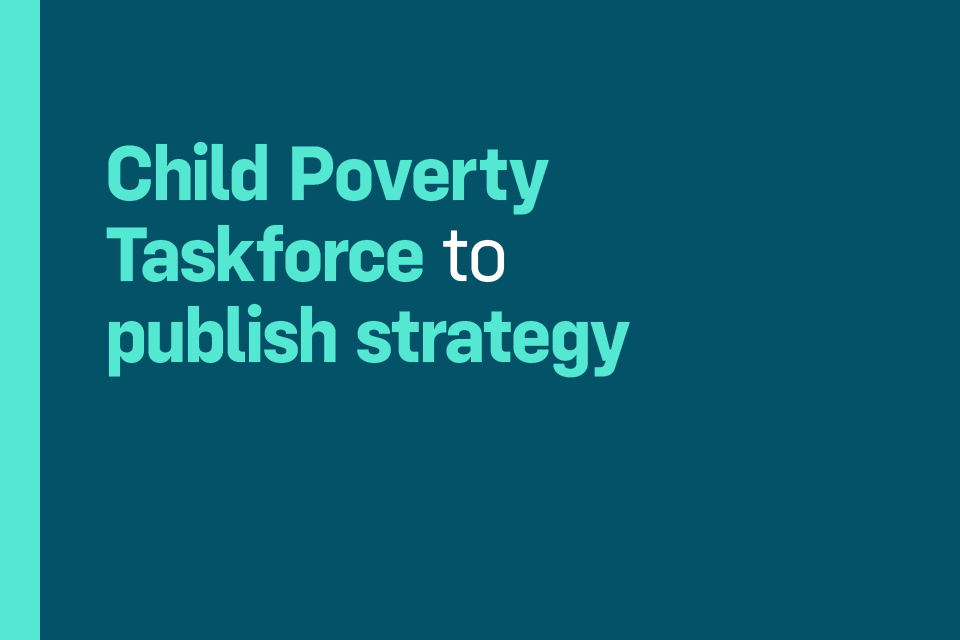- Cabinet ministers across government joined Work & Pensions and Education Secretaries in first Child Poverty Taskforce meeting
- taskforce will put the direct testimony of children, families and organisations at the heart of their work
- Child Poverty Strategy will be published in spring next year
Cabinet ministers including the Deputy Prime Minister, Chief Secretary to the Treasury as well as ministers for the devolved nations have joined the taskforce’s co-chairs, the Work & Pensions and Education Secretaries, to confront the wide-ranging and deep-rooted causes of child poverty.
With a broken housing market, millions waiting for medical treatment and families continuing to struggle with the cost of living, ministers set out the huge scale of the challenge in their inaugural meeting, examining why there are 700,000 more children living in poverty compared to 2010.
The Ministerial taskforce will harness all available levers to drive forward short-term and long-term actions across government to reduce child poverty, by:
- supporting households to increase their income including considering social security reforms that support people into work and alleviate poverty
- helping to bring down essential household costs, build savings and tackle problem debt
- alleviating the negative experience of living in poverty, including through supporting families and the role of public services
The taskforce will also hear directly from struggling families and children, front-line staff and leading campaigners, charities and organisations across the UK to shape the strategy.
It comes as the latest data shows that over four million children are now growing up in a low-income family. This not only harms children’s lives now, but it also limits their future prospects and it holds back our economic potential as a country.
Tackling child poverty across the United Kingdom is at the heart of the government’s mission to break down barriers to opportunity and improve the life chances of every child. That’s why we’re committed to delivering an ambitious strategy to reduce child poverty, tackle the root causes, and give every child the best start at life.
Work & Pensions Secretary Liz Kendall MP said:
Child poverty is a scar on our society. It harms children’s life chances and our country as a whole. That is why tackling child poverty is a top priority for this government.
We will take action in every department, with a comprehensive strategy to drive down poverty and drive up opportunity, building a better future for us all.
Education Secretary Bridget Phillipson MP said:
Child poverty is a scar on our country, which holds back children’s lives and life chances at home, in school and across our communities.
The scale of the challenge cannot be overstated. That is why this taskforce, working across government, is essential to ensure all departments are supporting this ambition and delivering on our mission of breaking down the barriers to opportunity for every child.
We will work with stakeholders, families and crucially children themselves so that our approach is guided by those impacted most.
As part of their work to develop the strategy, ministers on the Taskforce will also visit cities and towns across the UK, working closely with local and devolved government leaders to hear how child poverty devastates local communities and what can be done to combat it.
Co-chairs Liz Kendall and Bridget Phillipson will meet with the key charities and organisations to kick off regular engagement sessions in the coming weeks.
The taskforce will be supported by a new Child Poverty Unit in the Cabinet Office, drawing together experts from within and outside government, to help co-ordinate the development of the strategy.
The vital work of the taskforce comes alongside our commitments to roll out free breakfast clubs at all primary schools, create 3,000 additional nurseries, as well as deliver our plan to make work pay to turn the minimum wage into a real living wage.


